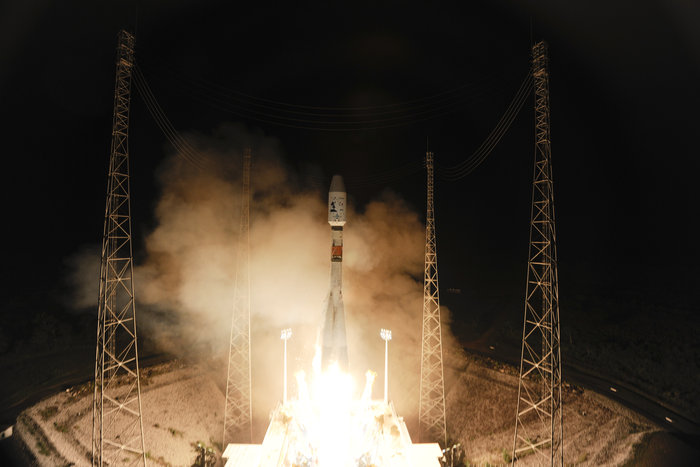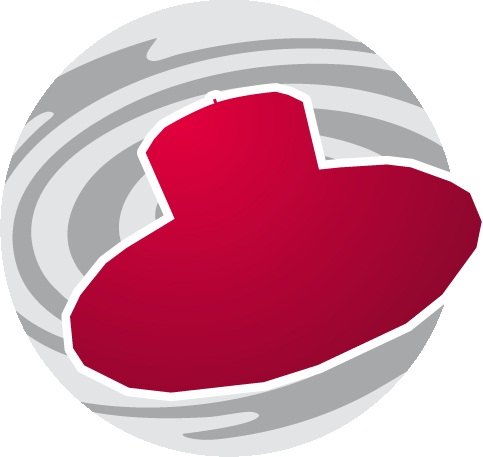20141219 First Gaia launch anniversary - Gaia
First Gaia launch anniversary |
||
|
DPAC members share their personal launch and commissioning stories |
||
 |
||
| Gaia lift-off from French Guiana on 19 December 2013 | ||
|
Exactly one year ago, at 10:12 CET, Soyuz VS06 with Gaia on board took off from Europe's spaceport in French Guiana, ferrying ESA's billion-star surveyor into space. After an exciting year with a successful L2 orbit insertion, a challenging commissioning period and the start of routine operations, Gaia is now scanning the sky, mapping on average 40 million stars a day. Gaia's routine phase started on 25 July 2014, and the spacecraft's current state and usage of consumables indicate that the mission can be extended past its nominal 5-year lifetime. In the past year Gaia has recorded 11.1 billion transits with 120.5 billion astrometric, 22.2 billion photometric and 3.3 billion spectroscopic measurements with its 106 CCDs on board. In the routine phase the corresponding numbers are 6.76 billion transits with 73.4, 13.5 and 2 billion astrometric, photometric and spectroscopic measurements. The total data volume from Gaia so far is 9.2 TB. The whole sky has been observed at least once in the routine phase. The spacecraft is currently performing astrometry and photometry for stars brighter than G = 20.7 mag and spectroscopy till GRVS = 16.2 mag. Leaving aside the hard numbers of Gaia's performance, there are literally hundreds of people who have been contributing with their skills and enthusiasm to the operations in the past year. In the section below six people involved in the data processing tell their personal stories, showcasing the individual and team efforts needed to run this mission. |
||
DPAC members share their launch and commissioning Stories |
||
| On the occasion of the first launch anniversary, six members of the Data Processing and Analysis Consortium (DPAC) share their launch and commissioning memories. Read their personal accounts by clicking on the links below. | ||
 |
George Seabroke, Mullard Space Science Laboratory "It was a privilege to witness the serene beauty of the launch" |
|
 |
Frédéric Arenou and the Observatoire de Paris-Meudon Gaia team "Gaia is Talking to Us!" |
|
 |
Stefan Jordan, Astronomisches Rechen-Institut, Zentrum für Astronomie, Universität Heidelberg "I was very happy to see that people from many different countries were that interested in Gaia" |
|
 |
Giorgia Busso, Institute of Astronomy, University of Cambridge "we keep on learning new things about this amazing machine" |
|
 |
Claus Fabricius, University of Barcelona "we spent January eagerly studying the very first data" |
|
 |
Ronald Drimmel, Astrophysical Observatory of Torino "Gaia... Something out of a science fiction movie!" |
|
- Removed a total of (16) style text-align:center;
- Removed a total of (10) style text-align:left;
- Removed a total of (3) style text-align:justify;
- Removed a total of (13) align=middle;
- Removed a total of (1) border attribute.
- Removed a total of (1) cellpadding attribute.
- Removed a total of (1) cellspacing attribute.








































 Sign in
Sign in
 Science & Technology
Science & Technology